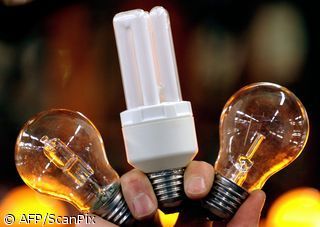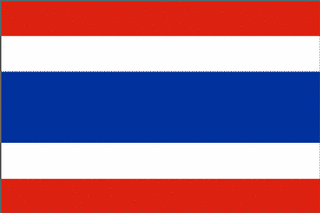It is the only source that can provide a chance for economic breakthrough
Published:
21 March 2005 y., Monday
Money from Russia’s Stabilisation Fund is expected to be invested abroad in dollar-nominated securities, with minimum investment risks and minimum profitability at 2-4%. These funds have until now been kept in Central Bank accounts. This means that a great deal of money will soon appear on the financial markets. On February 1, 2005, the Fund totaled 647.2 billion roubles ($23.1 billion), which mostly came from taxes on oil sales with prices exceeding $20 per barrel and export duties from oil companies.
The crucial question is how this money should be used. Money can only be taken out of the Fund when it has more than 500 billion roubles. Therefore, more than a fifth of its resources can already be used. This is a key issue for Russia’s economy, as the positive overseas market situation in recent years has been almost exclusively responsible for its growth.
However, experts are not tired of repeating that the potential of the resource-oriented Russian economy has been virtually exhausted. The mechanism whereby "we produce oil, sell it and enjoy the benefits" is becoming increasingly less effective. The country is now at a stage when it must introduce an industrial policy. However, any policy only makes sense when there is money to implement it.
Russia’s stock market and banking system do not provide the necessary financing for the real sector of the economy. Direct foreign investment in Russia remains at a very low level, while foreign investment in general is concentrated on either the import of equipment or foreign borrowings. The country obviously needs sources for further growth. The Stabilisation Fund is virtually the only potential source today and a genuine war is being waged for its funds.
Šaltinis:
financialexpress.com
Copying, publishing, announcing any information from the News.lt portal without written permission of News.lt editorial office is prohibited.
The most popular articles
 During the meeting, which took place on 3 September 2009 the Bank of Lithuania approved the transaction, according to which AB Bank SNORAS will acquire 100 percent of the shares of AB “Finasta įmonių finansai” owning AB bank “Finasta”.
more »
During the meeting, which took place on 3 September 2009 the Bank of Lithuania approved the transaction, according to which AB Bank SNORAS will acquire 100 percent of the shares of AB “Finasta įmonių finansai” owning AB bank “Finasta”.
more »
 The European Commission tabled yesterday its proposal on fishing possibilities for fish stocks in the Baltic Sea for 2010.
more »
The European Commission tabled yesterday its proposal on fishing possibilities for fish stocks in the Baltic Sea for 2010.
more »
 Members of the Civil Liberties Committee voiced concern on Thursday over the interim agreement under negotiation between the EU and the United States on data transfers via the SWIFT network.
more »
Members of the Civil Liberties Committee voiced concern on Thursday over the interim agreement under negotiation between the EU and the United States on data transfers via the SWIFT network.
more »
 Consumers in Cyprus, the Czech Republic, Hungary, Poland, Romania and Slovenia now have access to consumer magazines and websites, which provide independent, comparative testing of consumer products, following a three-year EU project co-financed by the European Commission.
more »
Consumers in Cyprus, the Czech Republic, Hungary, Poland, Romania and Slovenia now have access to consumer magazines and websites, which provide independent, comparative testing of consumer products, following a three-year EU project co-financed by the European Commission.
more »
 Funds management company “SNORAS Asset Management” will establish the first alternative investment fund in Lithuania - “SAM Renewable Energy Fund”.
more »
Funds management company “SNORAS Asset Management” will establish the first alternative investment fund in Lithuania - “SAM Renewable Energy Fund”.
more »
 The re-launched Lisbon Partnership for growth and jobs has put innovation and entrepreneurship at the centre and called for decisive and more coherent action by the Community and the Member States in view of mastering the shift towards knowledge based low carbon economy.
more »
The re-launched Lisbon Partnership for growth and jobs has put innovation and entrepreneurship at the centre and called for decisive and more coherent action by the Community and the Member States in view of mastering the shift towards knowledge based low carbon economy.
more »
 Helping dairy farmers now, as well as restructuring the dairy sector in the long run, is the way out of the current milk market crisis, Agriculture Committee MEPs told Agriculture Commissioner Mariann Fischer Boel in a debate on Tuesday.
more »
Helping dairy farmers now, as well as restructuring the dairy sector in the long run, is the way out of the current milk market crisis, Agriculture Committee MEPs told Agriculture Commissioner Mariann Fischer Boel in a debate on Tuesday.
more »
 The EU is phasing out traditional light bulbs over the next three years in favour of a new generation of energy-efficient lighting.
more »
The EU is phasing out traditional light bulbs over the next three years in favour of a new generation of energy-efficient lighting.
more »
 Lithuania increases the VAT rate from 19 % to 21 % from September 1, 2009.
more »
Lithuania increases the VAT rate from 19 % to 21 % from September 1, 2009.
more »
 Two recent joint missions from three development finance institutions helped Thailand identify low carbon projects that could be eligible for Clean Technology Fund financing.
more »
Two recent joint missions from three development finance institutions helped Thailand identify low carbon projects that could be eligible for Clean Technology Fund financing.
more »